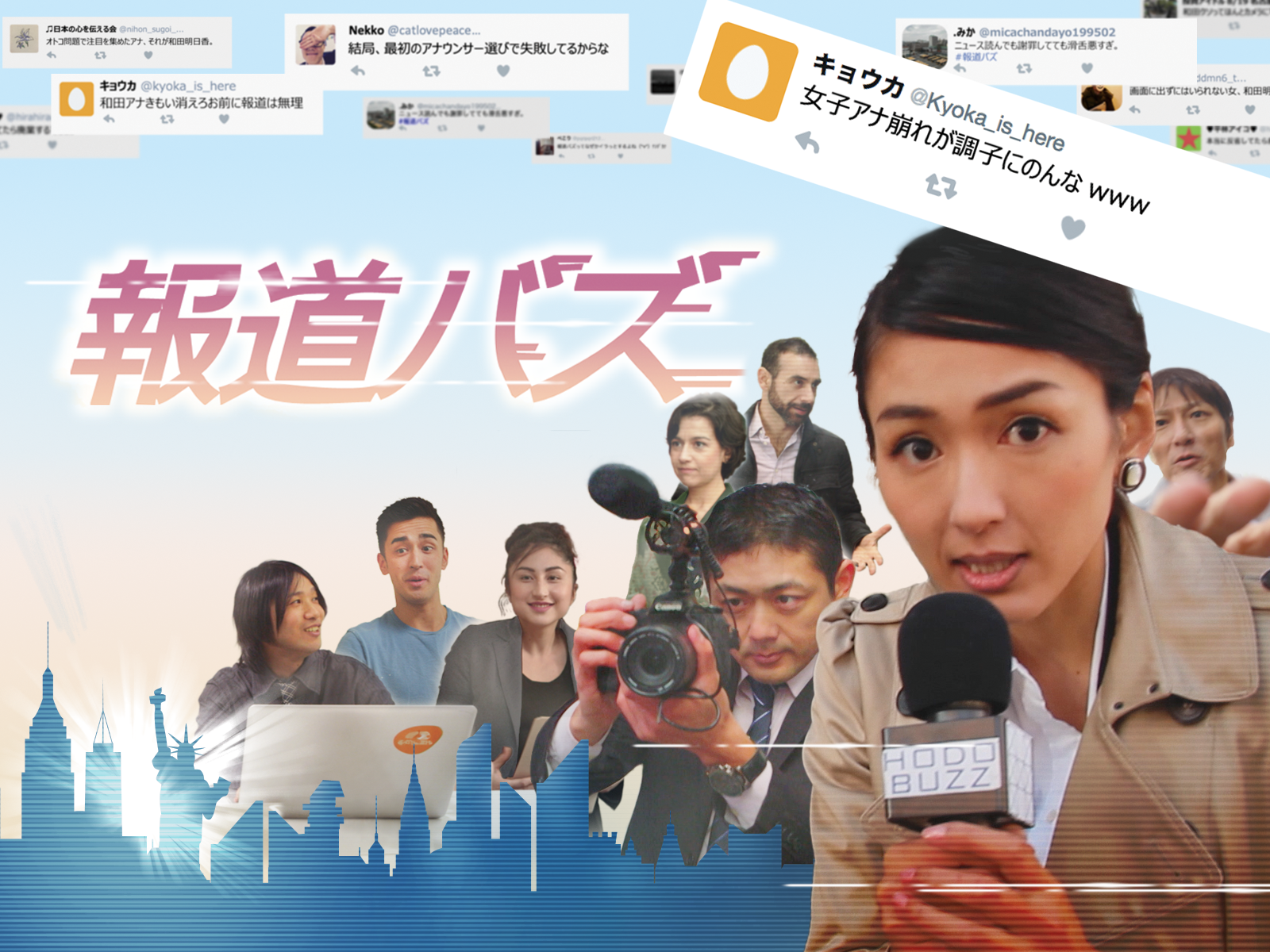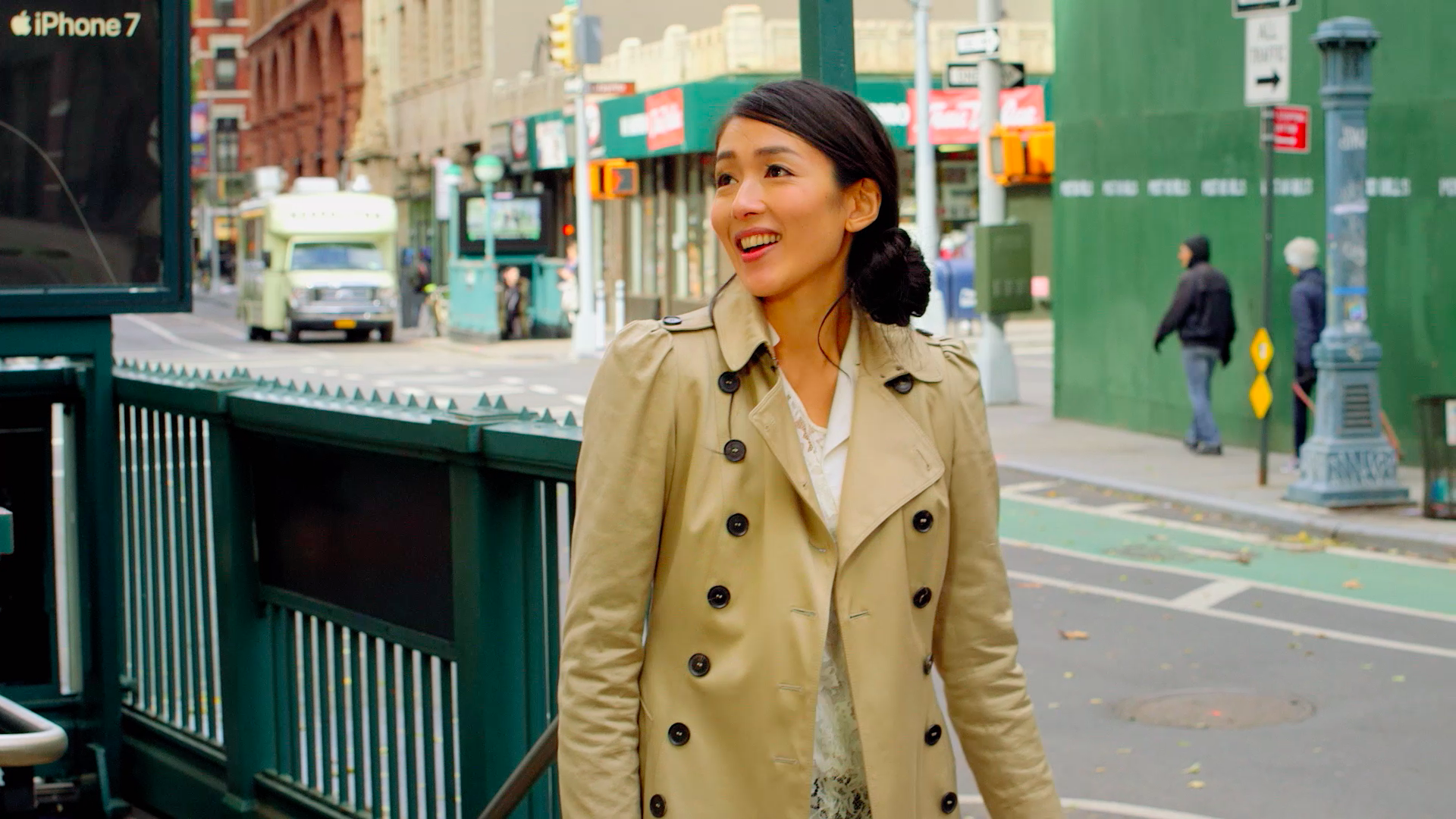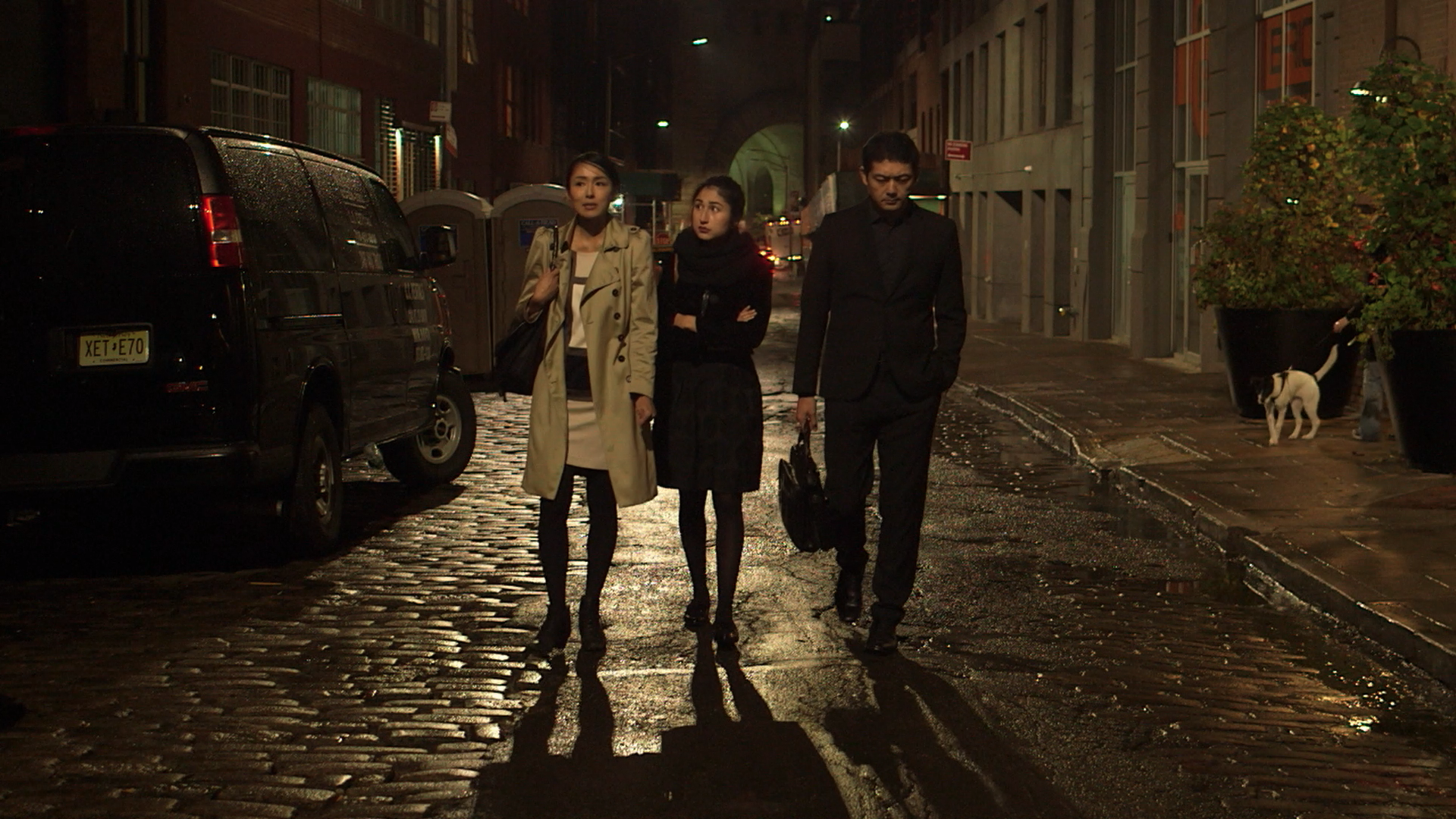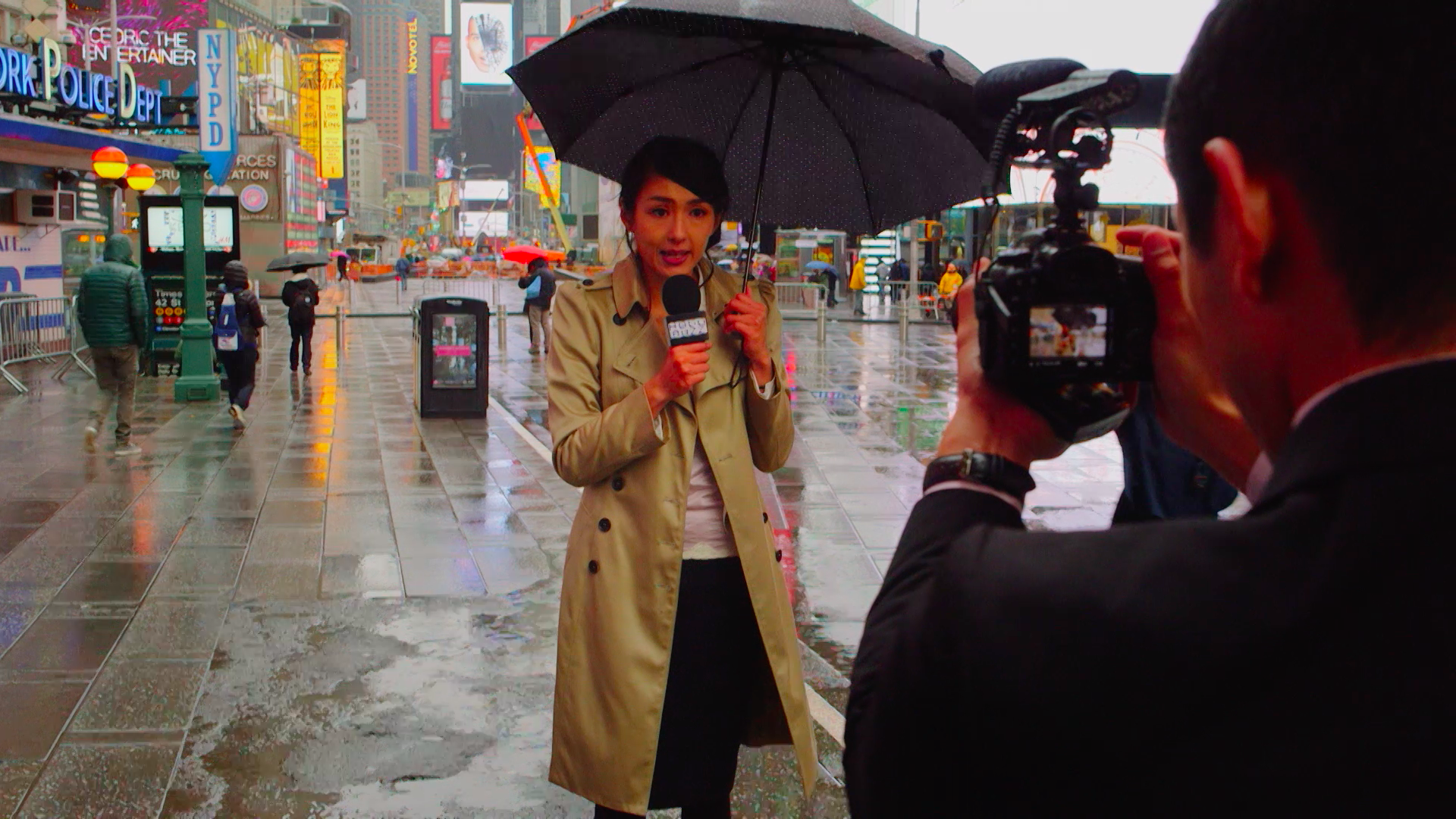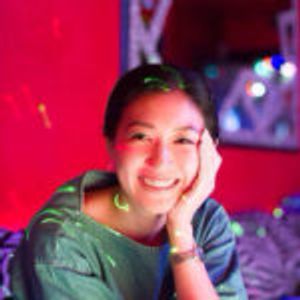The common belief in this world is to create a society with diversity, inclusion, and gender equality, where each individual could live according to their own values. It is widely known that Japan is lagging behind other countries when it comes to these issues. There are concerns that the global crisis that we face due to the pandemic will set back these efforts.
After the Great East Japan Earthquake in 2011, three Japanese citizens in New York started an indie film production team called Derrrrruq!!!, with the goal of supporting the recovery of Japan as Japanese living abroad. The name of the group comes from a word in Japanese, “the nail that sticks out.” There is a Japanese proverb that depicts an inclination of Japanese society: “The nail that sticks out always gets hammered down.” Living up to its name, their drama series tackle issues that are considered taboo in Japanese society. Both series were shot in New York, and incorporated deliberately, dialogues and sound effects that are not commonly used on Japanese television.
Their first series was “2nd Avenue” (2013), and dealt with sexuality, living abroad as foreigners, and diversity. Their second series “HodoBuzz” (2020), dealt with journalism, sexual harassment, and flaming on the internet. The first series can be viewed for free on YouTube. The second series is currently streaming on 12 platforms in Japan including Hulu Japan which will begin on May 1, 2021. It is also currently available on Amazon Prime in the U.S and England. The second series has received positive feedback in Japan and abroad, including immigrants from other countries noting that the series portrays sentiments that are specific to minorities. The team has been in existence for 10 years now. We asked Maho Honda, who plays the main character in both series, the director Mari Kawade, and the scriptwriter Tsukasa Kondo, about their respective thoughts on creating dramas about Japanese society in New York.
How to Break Out from the Cage That Confines Individuality in Japanese Society.
――I heard that your thoughts on the creative process changed drastically after the Great East Japan Earthquake. What happened at that time?
Maho Honda: In 2011, it had been two years since I had moved to the U.S. I didn’t feel confident back then, and was telling myself that I needed to speak English and acclimate myself to the American society. That is all I was focused on. After the disaster, I got in touch with my family and friends in Japan, and had more opportunities to think about Japan, including my roots. Around the same time, I remember Tsukasa reaching out to me with a project that could bring some interesting perspectives to viewers in Japan.
Mari Kawade: In those days, I was going back and forth between Japan and New York. When the disaster struck, I was in Japan. I had a family member, who was unwell and I was thinking about Japan all the time, even when I was back in New York. We were compelled to do whatever we could in those days, and “2nd Avenue” was an outcome of those efforts. The series reflects our experience of coming to New York from Japan, and we thought it would be our message to the Japanese people. We only incorporated what we had actually experienced in the series.
――What were the obstacles you encountered when producing “HodoBuzz”? The drama featured social issues and incorporated actual incidents, as well as existing businesses in Japan. Was the intention to trigger empathy among the viewers, so that they will see the issues as their own?
Kawade: Since we used crowdfunding to produce “2nd Avenue”, we didn’t want to do it again. But, we ended up raising money the same way. The reason we didn’t want to use crowdfunding was because we work together to complete the process and, and we knew we could end up with health problems after pulling many all-nighters. We also feel responsible for our supporters, so we can’t start a campaign with a half-baked determination. In those days, crowdfunding was already pretty popular in the US, but I was not sure if it could work in Japan — asking money for what we wanted to do. It was a major challenge, mentally.
When I was directing the series, I paid attention to the daily routine expressions that native speakers used, both in Japanese and in English. I spoke with each actor and rewrote the lines accordingly, so that their line delivery was natural and would not sound too scripted.
――What can be a trigger for an apathetic person to start empathizing with social issues and experience of others?
Tsukasa Kondo: In Japan, everyone is pushed into a cage; it’s a confined environment, where you are asked to play the role that you are expected to play. However, everyone has the desire to be let out of this cage. I think it is important to imagine that everyone has depth and complexity, behind their superficial personality and attribution. In “HodoBuzz”, there are two characters who have roots from countries other than Japan. One says, “I am Japanese,” and she has a Japanese identity and cherishes it. The other one says, “I look like a foreigner, but I am actually Japanese. And, I don’t speak English. I am one of those unfortunate hafu.” He has a self-deprecating character. In Japan, if you have mixed heritage, you are all lumped into one group as hafu. However, there are as many different perspectives and personalities, as there are people who are hafu.
In Japan, sometimes people will put others and themselves in a box, with the idea that it would make it easier to communicate with others. However, this tendency could make people stop thinking about the complexity of humans. If we can stop treating others with preconceived notions about their personality, I think it would enable us to be empathetic about social issues, and people’s experiences. There are also many instances, where people don’t want to live up to the character that was imposed on them.
For example, when I say I am gay, at times, someone who heard about it would have preconceived image about gay people. And, if you don’t act according to that image, they may say you are not gay enough. There is a gap between who you are and the image that other people conceive. And, many people are feeling a sense of discomfort or constraint about what is expected of them. It is very important to sense what the other person is feeling. I hope that “HodoBuzz” will help eliminate stereotypical ideas.
Also, there is pressure to conform in Japanese society. Even when others are suffering, people may say, “Endurance is important,” or “Everyone is enduring.” They don’t even think about how much hardship other people might be going through. I felt that there is a structure in place, so that you stop thinking, and avoid discussing anything. Many people are enduring, so they react or become angry towards people who stand out, voice their opinions, or live their lives as they want to, with pride. To empathize with other people, I think it is important that we live in a society where we don’t force others to stay patient.
Deepening Yourself: Unload Your Burden Than Looking for New Things.
――How can we breakdown the wall that confines us into what is expected of us, or what other people expect us to be?
Kondo: Your identity as a person is inherent and cannot be imposed on you by others. If you can find something you can be passionate about, you are fortunate. But that is surprisingly difficult. I think it’s healthier, if you can deepen yourself by unloading unnecessary things, rather than keep looking for something new. By saying no to what you don’t like and stop trying to figure out “what is expected of you”, you will find out what is truly important to you.
Honda: Don’t push yourself too much; say no to things you don’t like; don’t give up easily on what you want to do; convey clearly what you want to say. If I stick to these actions, I believe that I can lead a self-fulfilling life.
Kawade: I worked in Japan for many years, and am used to suppressing my individuality and feelings. My mind was focused on staying patient and be skillful at creating a harmonious environment. After I came to New York, I realized that it was not a good thing. I learned that people need to make themselves happy. I experienced how comforting it was to be in a place where everyone can voice their opinions, present their ideas, and create something new.
――In both series, the characters could find who they want to be, and started to take actions. Could you tell us when you felt a sense of comfort about living in New York?
Kawade: When we made “2nd Avenue”, we didn’t put any limits on race or attribution. We managed to finish the project with the help of different kinds of people, and we really felt that the series was created in New York. There were so many people who were involved in this project including mentors, friends, and people who happened to be on location and were recruited to say a line. I don’t think we could finish the series if we had tried to make it in Japan. New York is very competitive, but everyone has the right to get on stage.
Kondo: In New York, there is trust for other people’s talent and sensibility. It’s very competitive, but talented people believe that there are wonderful people with more talent than them, living in the city. It is an environment where you can communicate casually with anyone, regardless of age, career, and titles. You can receive an offer for an interesting project from a person you just met saying, “Do you want to be in the film I am shooting next week?” People are always looking for collaborators. When it comes to professionalism, it is strict, but there is trust for potentials. Five years after my arrival in New York, I had wonderful encounters, and I felt that things were moving with speed to an interesting direction. That’s when I felt that I had become a New Yorker.
Honda: What I am going to say now is probably due to cultural difference, so I want to make sure that there is no misunderstanding. I actually started to enjoy wearing makeup, since I moved to New York. When I was in Japan, I used to think that it was rude to meet people without wearing makeup. I felt that my face had value when I am wearing makeup, and had no value without makeup. However, now I think that I am fine as a person without makeup and I would only wear makeup if I want to.
――This is a question for Ms. Kawade. I heard that you were heartbroken when you saw the main character in “HodoBuzz” suffering in her job. What helped you persevere and continue shooting the series?
Kawade: I wanted to portray the importance of taking the first step. Before I came to New York, I worked in Japan for 16 years. There was a time when I worked in a male-dominated environment. I worked in different areas and departments, as the first female worker, with the idea that I was the trailblazer. However, there were many instances where I was caught between what was expected of me and what I wanted to do. I forced myself to keep quiet, and made compromises. In New York, if your opinion is different from others, you voice it clearly and take actions based on your opinions. The main character in “HodoBuzz” suffers from this and it reminded me of my past and it was difficult for me as well. But I took the leap, and incorporated these aspects in the series. If this was about an actual anchorwoman in Japan, I don’t think I would have had the courage to go that far. As a director who came to New York from Japan, I felt that it was my task to portray the characters, who had taken the first step in New York, as realistic as possible. My experience in New York is also reflected in the script.
Freedom in New York Constantly Reminds Us of Our Lack of Experience.
――Mr. Kondo, I learned that the gay character Tamura in “HodoBuzz” is based on your own life experience. What are the important aspects of the character that you wanted to emphasize?
Kondo: When I was 23-years-old, I came out to my family and friends. It was right before moving to New York. New York is the first place that I could live without lies and made new friends, fell in love, and held hands with my partner while walking in town. There is a line when Tamura says, “After moving to New York, I feel that I could grow as a person.” That line is based on my own experience. During adolescence, I was unable to build sincere and honest relationship with other people, and I felt that I couldn’t have important learning experience or grow as a person. I remember thinking that I was having an overdue experience in New York. Growth means learning about your shortcomings as a person. Freedom in New York is wonderful, but it’s not only about that. I constantly reflected on my lack of experience.
I think that gay characters created by non-gay directors and scriptwriters tend to be portrayed in a positive, one-faceted way, and lack in complexity. It’s probably because they are not gay. It’s very important to portray a diverse group of people in films. I am gay and based on my life experience, I can dig in deeper with conviction to portray the complexity of gay psyche or even the ugly side. I see it as my mission, to portray gay men that are not one-faceted. Even if it leads to portraying the ugly side of people; as long as it is equipped with realistic complexity, I believe that the viewers will understand it as a story of an actual person.
――Ms. Honda, you said that “HodoBuzz” was a kind of a drama that you would have liked to watch when you were in Japan. What kind of drama are you referring to?
Honda: What I remember about the Japanese TV drama in the 2000’s, is that the actors were all good-looking. And the way women were portrayed in these dramas, was based on values that women should behave in a certain way and I think that led to people internalizing their respective roles as men and women.
Nowadays, we can produce indie series without working for one of the networks and little-known actors have more opportunities for work. “2nd Avenue” and “HodoBuzz” were made with people from diverse backgrounds. The characters in “HodoBuzz” are human, imperfect, and unhip; but they are trying their best. I think it will be great to see an emergence of these types of do-it-yourself dramas. I also hope that there are viewers, who are attracted to these types of content.
――How did the pandemic impact the way you communicate with people?
Honda: I am an introvert, and could store energy when I am on my own. Then I realized that I was losing my mind when I was forced to be in a situation where I could not meet anyone. My friend started an information sharing site on FB in Japanese, for people living in New York. I am involved as a moderator. I didn’t notice it until after the pandemic that the Japanese news on the internet about New York was not catering to the Japanese living in New York, and it was to draw attention from people in Japan. I came across with news stories that were quite odd, for a Japanese living in New York. Especially during the pandemic, when it’s easy to get confused and you are living under stress and anxiety; I realized that, at times, it was better not to watch the Japanese news.
Kondo: Through the interactions I had with colleagues and clients and some small things that happened in my daily life, I had more opportunities to feel the kindness of others. I get to work not only with Americans, but also with people from other countries. In the past, we probably didn’t talk about anything other than work. During the pandemic, we spoke about how we had been doing, shared information, and the conversation was real. When you are busy or you are in a situation to make complaints, you forget that the other person is just as human as you are. This pandemic was an opportunity to remember the most fundamentally important thing in life.
――What is your next project?
Kawade: I would like to shoot a series for the English language viewers. I think it is possible to create series based on a minority’s perspective from a non-English speaking country, moving to an English-speaking country. I would like to continue expanding my horizon.
Kondo: We are always looking for partners and producers to team up for production and streaming for our next project. If anyone is interested in making a sequence or a spin-off version of the past series, please feel free to contact us anytime.
Derrrrruq!!!
A team of artists making films from the perspective of Japanese living abroad. Mari Kawade (she/her), a director moved to New York to make indie films after leaving her office job of many years in Japan. Tsukasa Kondo (he/him) is a Japanese scriptwriter, who came to the U.S. as he was attracted to the country of freedom where he could come out as a gay person. Maho Honda (she/her) left her career as a celebrity in Japan, and moved to New York. She rides her bikes all over Manhattan to go to auditions. The team members are from different generations. and their work features characters that fight against the stereotypical views of “how a man should behave”; “how a woman should behave”; “how a Japanese person should behave”; “how to act according to your age” in Japan. They are interested in creating dramas that is not strictly entertainment.
https://www.derrrrruq.com/
Twitter:@derrrrruq
Imstagram:@derrrrruq
Facebook:@derrrrruq
Translation Fumiko M

